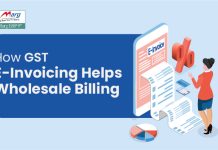An Introduction to E-Invoicing Limits
In recent years, e-invoicing has become a popular way for businesses to streamline their invoicing processes and reduce the time and cost associated with paper-based invoicing. However, e-invoicing is not without its limitations, and it’s important for businesses to understand these limitations before making the switch to electronic invoicing.
Limitations of E-Invoicing: What Businesses Need to Know
One of the most important limitations to be aware of is the e-invoicing limit, which refers to the maximum value of an invoice that can be processed electronically. This limit is set by government agencies and tax authorities to prevent fraud and ensure that high-value transactions are properly monitored.
In India, for example, the e-invoicing limit is currently set at INR 100,000. This means that any invoice with a value greater than INR 100,000 must be processed on paper and cannot be submitted electronically.
This limit can present a challenge for businesses that regularly deal with high-value transactions, as it requires them to maintain separate invoicing processes for electronic and paper-based invoices. However, it is worth noting that the e-invoicing limit is regularly reviewed and revised, and it is possible that the limit may be increased in the future to accommodate the growing use of e-invoicing.
Another limitation of e-invoicing is the requirement for businesses to register with a government-approved e-invoicing platform. This platform acts as a secure repository for electronic invoices and provides a centralized system for monitoring and tracking invoices. Businesses must comply with the requirements set by the platform provider, including the use of specific software and security measures.
Despite these limitations, e-invoicing has many benefits that make it an attractive option for businesses. E-invoicing can reduce the time and cost associated with paper-based invoicing, improve accuracy and reduce the risk of errors, and provide real-time visibility into the invoicing process.
In addition to the e-invoicing limit and the requirement for registration with a government-approved platform, there are a number of other limitations to be aware of when it comes to e-invoicing.
One such limitation is the requirement for businesses to have access to the internet and a computer or other device capable of generating and transmitting electronic invoices. This can be a challenge for businesses that operate in areas with limited internet connectivity or for those that do not have access to modern technology.
Another limitation is the lack of standardization in e-invoicing across different countries and regions. Each country may have its own set of requirements for e-invoicing, including different e-invoicing limits, registration procedures, and compliance requirements. This can create difficulties for businesses that operate in multiple countries, as they must navigate the different e-invoicing requirements in each location.
Finally, it’s worth noting that there is a risk associated with the transmission of electronic invoices, such as the risk of data breaches or cyber attacks. To minimize these risks, it’s important for businesses to implement strong security measures, such as encryption, secure passwords, and regular backups, to protect their electronic invoicing systems.
Despite these limitations, the use of e-invoicing is growing, and more and more businesses are making the switch to electronic invoicing. This is largely due to the many benefits of e-invoicing, including improved efficiency, accuracy, and security. By understanding the limitations of e-invoicing and taking steps to mitigate these risks, businesses can successfully implement e-invoicing and reap the benefits of this innovative technology.
Free Download E-invoicing Software
Conclusion
In conclusion, it’s important for businesses to understand the e-invoicing limit and other limitations before making the switch to electronic invoicing. While these limitations may present challenges, they are outweighed by the many benefits of e-invoicing, including improved efficiency, accuracy, and security. With the right planning and preparation, businesses can successfully implement e-invoicing and reap the benefits of this innovative technology.
Read Useful Article
Frequently Asked Questions about E-Invoicing Limits
What is an e-invoicing limit?
The e-invoicing limit is the maximum value of an invoice that can be processed electronically. This limit is set by government agencies and tax authorities to prevent fraud and ensure that high-value transactions are properly monitored.
Why is there an e-invoicing limit?
The e-invoicing limit is in place to prevent fraud and ensure that high-value transactions are properly monitored. By setting a limit on the value of invoices that can be processed electronically, government agencies and tax authorities can ensure that these transactions are properly recorded and taxed.
What happens if an invoice exceeds the e-invoicing limit?
If an invoice exceeds the e-invoicing limit, it must be processed on paper and cannot be submitted electronically. This means that businesses must maintain separate invoicing processes for electronic and paper-based invoices.
Can the e-invoicing limit be increased?
Yes, the e-invoicing limit is regularly reviewed and revised, and it is possible that the limit may be increased in the future to accommodate the growing use of e-invoicing.
What are the other limitations of e-invoicing?
In addition to the e-invoicing limit, there are a number of other limitations of e-invoicing, including the requirement for businesses to register with a government-approved e-invoicing platform, the need for access to the internet and a computer, and the lack of standardization in e-invoicing across different countries and regions.
How can businesses mitigate the risks associated with e-invoicing?
To minimize the risks associated with e-invoicing, it’s important for businesses to implement strong security measures, such as encryption, secure passwords, and regular backups, to protect their electronic invoicing systems.
Is e-invoicing worth the effort, despite the limitations?
Yes, despite the limitations of e-invoicing, the benefits of this technology are many, including improved efficiency, accuracy, and security. With the right planning and preparation, businesses can successfully implement e-invoicing and reap the benefits of this innovative technology.
How can businesses navigate the different e-invoicing requirements across different countries and regions?
To navigate the different e-invoicing requirements across different countries and regions, businesses may need to engage with professional service providers that specialize in e-invoicing and cross-border transactions. These providers can help businesses understand the different requirements and ensure compliance with e-invoicing regulations.






